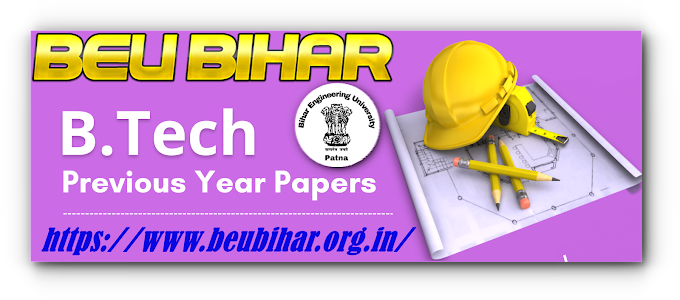Solutions for NPTEL Week 6 Assignment on Cloud Computing
This article provides detailed answers to the NPTEL Week 6 assignment on Cloud Computing. The solutions cover essential concepts and ensure that students understand the reasoning behind each answer. Each question is addressed thoroughly, ensuring clarity and aiding in the overall learning experience.
1. Which of the following is an inclusion in the Industry 4.0 application as per ICP DAS?
Answer: Supply chain automation
Explanation: Industry 4.0 focuses on integrating digital technology into industries to enhance efficiency and automation. Supply chain automation is a key element in this integration, streamlining processes and reducing human intervention in logistics and procurement.
2. Which technology does Caterpillar integrate with IoT for enhanced machine interaction?
Answer: Augmented Reality (AR)
Explanation: Caterpillar uses AR to overlay digital information onto real-world environments, providing operators with real-time data, improving decision-making processes, and enhancing operational efficiency.
3. What is the objective of the Cisco & Fanuc smart factory initiative?
Answer: Maximize downtime in industrial facilities
Explanation: The initiative by Cisco & Fanuc aims to create smart factories using IoT, which helps in optimizing industrial operations, reducing downtime, and increasing overall efficiency.
4. Which of the following is NOT one of the building blocks of a business model?
Answer: Employee Satisfaction
Explanation: Employee satisfaction, while important, is not considered a foundational building block of a business model. The core building blocks include value proposition, market segment, and revenue generation.
5. Which of the following is NOT a type of customer segment?
Answer: Unsegmented market
Explanation: Customer segmentation divides a market into distinct groups based on needs, behaviors, or demographics. "Unsegmented market" is not a recognized category, as it contradicts the concept of market segmentation.
6. What is a characteristic of the Subscription Model in IoT business models?
Answer: Recurring revenue through regular subscription fees
Explanation: The subscription model generates continuous income by offering services on a recurring payment basis, ensuring ongoing customer engagement and a steady revenue stream.
7. Which of the following is NOT a type of IoT business model?
Answer: Product-Based Business Model
Explanation: IoT business models typically include cloud-based, service-oriented, and process-oriented approaches. A product-based model is more traditional and does not align with the service-oriented nature of IoT.
8. What is an SLA in the context of business transactions?
Answer: Service-level agreement
Explanation: An SLA (Service-Level Agreement) defines the expected service level between a provider and a customer, ensuring accountability and performance standards, which are crucial in IoT environments.
9. What does Infrastructure-as-a-Service (IaaS) provide?
Answer: Required hardware and software online in the cloud
Explanation: IaaS offers essential infrastructure components like servers, storage, and networking over the internet, enabling businesses to operate without the need for physical hardware.
10. Which business model aims at process optimization within a company and across company borders?
Answer: Process-Oriented Business Model
Explanation: This model focuses on optimizing business processes both internally and externally, leveraging technology and IoT solutions to streamline operations and enhance collaboration.
11. What type of KPI is input-oriented and hard to measure?
Answer: Leading KPI
Explanation: Leading KPIs are predictive and help anticipate future outcomes, but they are challenging to measure because they are based on changing variables and are not tied to immediate results.
12. Which of the following is a major focus and activity of Industrial Internet Consortium (IIC) members?
Answer: Testbeds
Explanation: IIC members focus on testbeds as they provide environments for real-world testing of industrial IoT solutions, ensuring their effectiveness before deployment.
13. What does the Usage Viewpoint in IIRA relate to?
Answer: Key capabilities identified in the business viewpoint and activities coordinating different units of work
Explanation: The Usage Viewpoint in IIRA coordinates various activities and capabilities identified in the business viewpoint, focusing on defining usage scenarios that optimize operations.
14. What are the elements of an activity in the Usage Viewpoint of IIRA?
Answer: Role, Task, Workflow, Implementation Map
Explanation: These elements are crucial for defining and coordinating roles, tasks, and workflows within the IIRA framework, ensuring that business operations are carried out effectively.
This detailed breakdown of the assignment questions and answers provides clarity and understanding of the key concepts in Industry 4.0 and IoT. It is designed to help students grasp the material and apply it effectively in their studies and future careers.


![BEU Syllabus : 1st Year Syllabus All Branches PDF 2023 [ME, CE, EE, ECE, CSE, EEE, IT]](https://blogger.googleusercontent.com/img/b/R29vZ2xl/AVvXsEjGya1VH_oIzUE4qmmukK-nXYT6F910WvSYKyOJjCqK2ziAfr2-GZGtQ-6_vjA-vYMOvVUceVq57iEn1Jz35hnIcMmn_SzHh21qkVWTzZAi9hjksq60CcUJRcpO6vTMo3578iaWgpvyY1iiMSLaFS2VqKrQMFZo4mSF7-H_hKBx6GIYaDgSsXDujXeLmw/w680/BEUSyllabus-1.jpg.webp)



